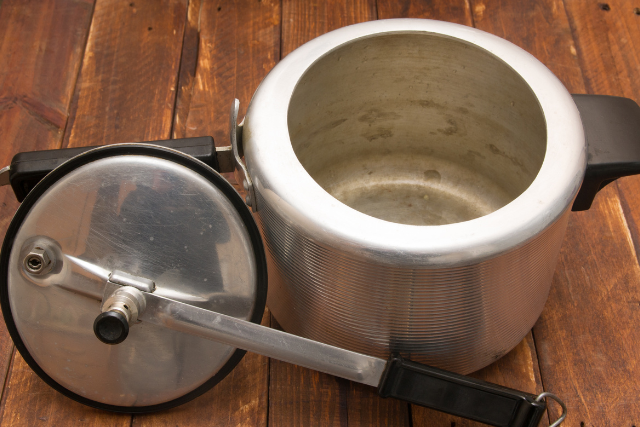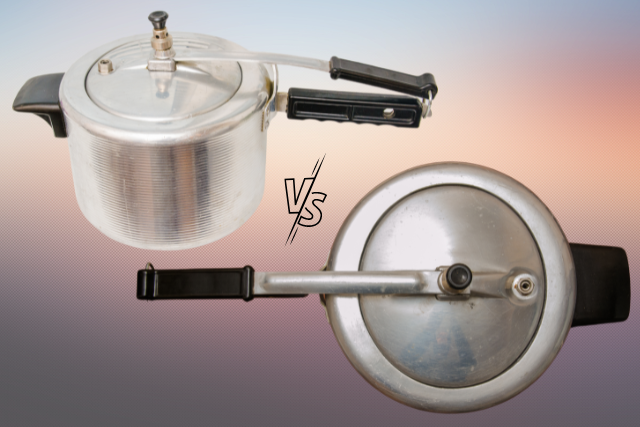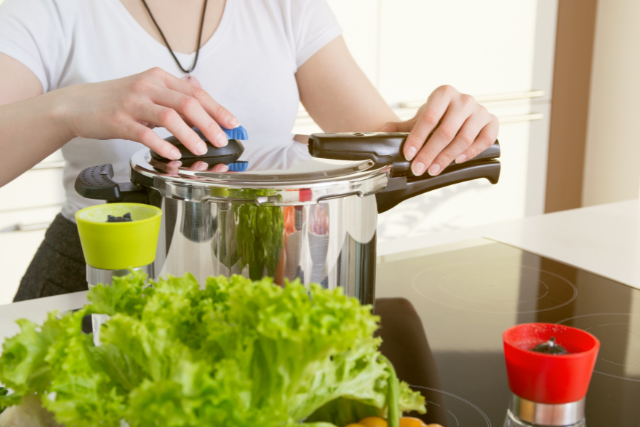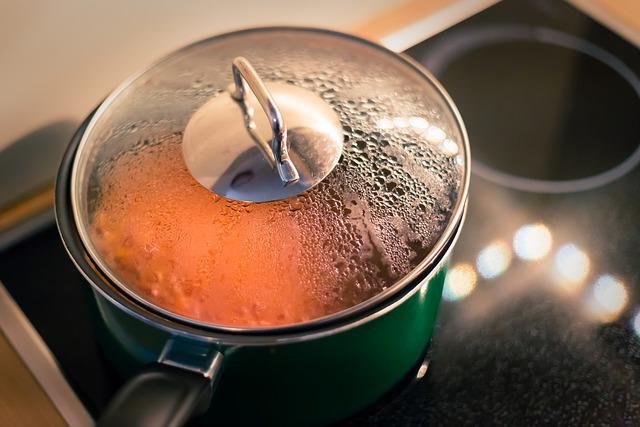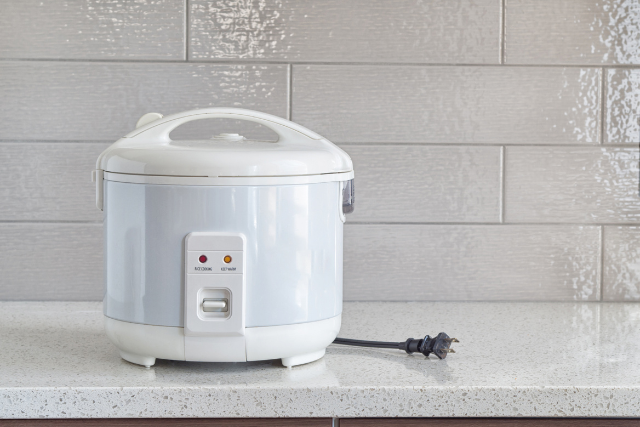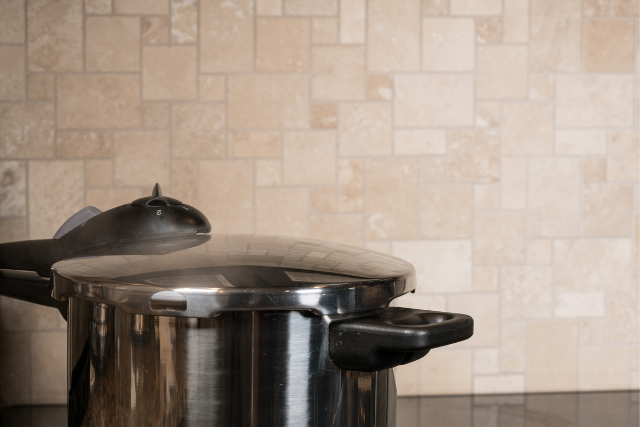Unleash the Incredible Benefits of a Pressure Cooker: Maximize Your Kitchen’s Potential!
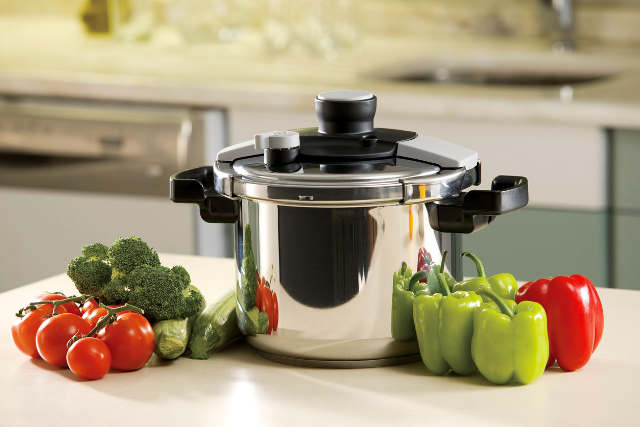
Even though most recipes can be made without one, the pressure cooker has never lost its popularity or importance. What are the benefits of a pressure cooker? Let’s have a look at the advantages of using a pressure cooker to prepare food.
Pressure cooking is a cooking method that uses steam under high pressure to cook food in a sealed pot with water or a cooking liquid. The high pressure stops boiling and raises the cooking temperature to over 100°C (212°F), which cooks food faster and more evenly.
Cooking the food inside the covered lid of a pressure cooker helps to keep the moisture in the food as well as the nutrients are intact. When compared to food cooked in pans and pots, food cooked in a pressure cooker has more minerals and vitamins. One of the most significant advantages of utilizing a pressure cooker is the reduction in cooking time.
In a pressure cooker, you can cook food at a considerably faster rate, but cooking the same meal in a pot takes much longer. Because the food cooked in a pressure cooker does not evaporate as it does in pans and pots, you may appreciate the taste and flavor of the food prepared in it.
Benefits of a pressure cooker
1. Foods retain the majority of their nutrients and are more delicious
Pressure-cooked foods provide a greater nutritious boost than those cooked in traditional cookware for longer periods of time. The more time food is cooked, the more nutrients are lost. According to one study, food cooked under pressure loses more antioxidant activity than food prepared in other ways, such as microwaving or baking.
Foods prepared in a pressure cooker cook faster and use less liquid. The liquid is removed from the food, leaving the food with the majority of its nutrients. Because meals are cooked in smaller amounts of water for shorter periods of time, they are less likely to lose color, flavor, and minerals and vitamins that are evaporated or diluted when cooked in huge amounts of water for longer periods of time.
Pressure cookers may cut cooking time by up to 70%, which is a significant reduction in the time foods spend on the stove, boiling or steaming away their inherent flavor and nutrients. Overall, pressure cooking brings out the natural tastes and richness of meals.
2. Versatility
Pressure cookers are versatile kitchen appliances that can be used to cook a wide range of foods, from grains and beans to meats and vegetables. Here are some examples of foods that can be cooked in a pressure cooker:
- Rice, quinoa, barley, and other grains can be swiftly and readily cooked in a pressure cooker. Simply add the grain and water or broth to the pressure cooker and let it do the rest.
- Dried beans and legumes typically take hours to cook on the stove, but a pressure cooker can dramatically reduce that time. Soups, stews, and other foods can benefit from the addition of beans and legumes.
- Meats: Pressure cookers are excellent for cooking tough portions of meat like beef brisket, pig shoulder, or lamb shanks. High pressure and heat can help to break down meat fibers, making it soft and delicious.
- Vegetables: Pressure cookers can be used to swiftly and uniformly cook vegetables without overcooking or losing nutrients. Carrots, potatoes, and beets, for example, can be steamed or cooked in a savory broth.
In addition to cooking a wide range of foods, pressure cookers can also be used for different cooking methods, such as sautéing or steaming. Some pressure cookers come with sauté or sear functions, which allow you to brown meat or vegetables before pressure cooking them.
Others have a steamer basket or rack, which can be used to steam vegetables, fish, or dumplings. This versatility makes pressure cookers a great addition to any kitchen, whether you’re a novice cook or an experienced home chef.
3. It conserves energy
Pressure cooking is significantly more efficient than using numerous pots on separate burners, and it can save you a lot of money. This is due to the fact that pressure cookers are ideal for one-pot cooking. In addition, because pressure cookers require less cooking time, they consume less energy to produce meals. With the ever-increasing cost of electricity, we’re all looking for methods to save money and lower our monthly bills.
4. Easy cooking at high altitudes
Cooking at high elevations requires the use of a pressure cooker. As the altitude rises, atmospheric pressure falls, forcing water to boil at lower temperatures and extending cooking times. At high elevations, a pressure cooker can be used to compensate for the reduced atmospheric pressure.
Water’s boiling point decreases at every certain height, resulting in a boiling temperature well below 100 degrees Celsius at standard pressure. When purchasing a pressure cooker, pay close attention to the psi. You’ll have to choose between a stovetop and an electric cooker, but make sure you choose the one with the greatest psi.
5. It saves time when it comes to dinner preparation
When using a pressure cooker, cooking time is substantially decreased because foods cook up to 70% faster, making it a useful tool for rapidly getting a meal on the table.
We’ve all had those days when we’ve come home from work too weary to cook and need to get dinner on the table quickly. On days like these, the pressure cooker can quickly prepare a nutritious and delicious one-pot dinner. Toss in all of the ingredients, and dinner will be done by the time you finish cleaning up the kitchen and arranging the table.
6. Easy boiling and cooking at a lower temperature
If the pressure is strong enough, you may boil the water at a low temperature. In other words, pressure cooking cooks meals at a lower temperature than other techniques of cooking, utilizing the pressure to speed up the cooking process. Cooking meals on the stovetop pressure cooker or in an electric pressure cooker is one of the quickest ways to cook vegetables, meat, etc.
Regardless of the pace with which this approach cooks the food, it will be properly cooked and have a beautiful flavor similar to what you get when using slow-cooking methods such as simmering at low heat.
7. The kitchen is more comfortable
A pressure cooker keeps the heat and steam inside, so none of it escapes to heat up your kitchen. A cooler kitchen is achieved by reducing the quantity of heat and steam. You no longer have to be concerned about your pressure cooker bursting due to high pressure. Manufacturers have incorporated so many safety features into pressure cookers that they now provide total safety.
8. Food can be preserved using pressure cookers
Of course, pressure cookers are also meant for canning items to be kept for later use. The larger types are often referred to as “canners” because of this. Pressure canners typically produce up to 15 pounds per square inch of pressure, which is sufficient for cooking and canning meats and fish.
Smaller, lighter pressure cookers can be used for canning at home, although they contain fewer jars than bigger versions. The lower volume cookers are usually utilized for everyday cooktop meal preparation while having this canning facility. This is one of the most significant benefits of a pressure cooker.
9. There is a reduction in the cleaning efforts
Cooking with normal stovetop pots leaves cooking residues on the stovetop, control panel, and nearby surfaces like walls and counters. Steam and oils escape from open cookware and land on these surfaces, necessitating clean-up after the meal has been prepared. A pressure cooker, on the other hand, has a tight-fitting lid that keeps any spills or spatters from exiting the cooking vessel.
This also eliminates any potential boilovers, which would necessitate further cleanup. And when the meal is ready, there’s just one pot to clean. Cooking food under a covered lid minimizes spills or spattering on the gas stove surface, making cleaning considerably easier.
Conclusion
the benefits of a pressure cooker are numerous and can make a big difference in your cooking experience. From faster cooking times and energy efficiency to retention of nutrients and flavors and versatility in cooking different types of foods, a pressure cooker is a valuable addition to any kitchen.
It can help you save time and energy while producing delicious and healthy meals for you and your family. With so many different models and types of pressure cookers available, it’s important to choose one that fits your needs and budget. By taking advantage of the benefits of a pressure cooker, you can unlock your kitchen’s full potential and create amazing meals with ease.
So, whether you’re a seasoned home cook or just starting out, consider adding a pressure cooker to your kitchen and start enjoying the many benefits it has to offer!
Frequently Asked Questions
Can pressure cookers save me money on my energy bills?
Yes, pressure cookers use less energy than traditional cooking methods, which can help you save money on your energy bills over time.
How do I choose the right pressure cooker for my needs?
When choosing a pressure cooker, consider factors such as size, material, and features such as digital displays or preset cooking programs. It’s also important to choose a pressure cooker that fits your budget and cooking needs. (Know more: Types of Pressure Cookers)
Can pressure cookers be used for canning?
Some pressure cookers are designed for canning, but it’s important to choose a model that is specifically labeled for this purpose and to follow safe canning practices.
Can I cook frozen food in a pressure cooker?
It’s generally not recommended to cook frozen food in a pressure cooker, as it can affect the cooking time and may result in unevenly cooked food. It’s best to thaw frozen food before cooking it in a pressure cooker.
How do I clean and maintain my pressure cooker?
To clean your pressure cooker, use warm, soapy water and a non-abrasive sponge or cloth. Make sure to remove any food residue or buildup from the pot and lid. It’s also important to check and replace the rubber gasket periodically, and to follow the manufacturer’s instructions for cleaning and maintenance.

